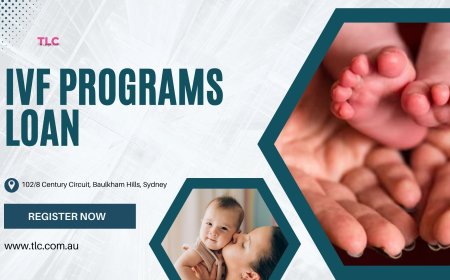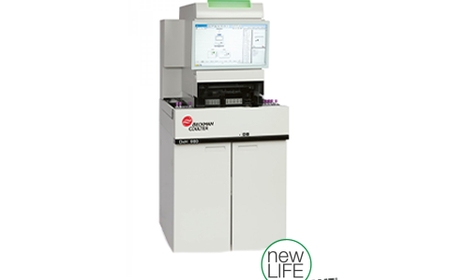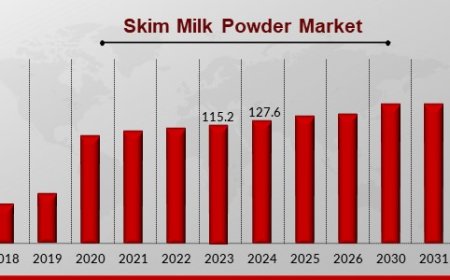Insights from an IVF Specialist Doctor: Common Causes of IVF Failure?
Understanding the common causes of IVF failure—especially through the lens of a highly skilled specialist like Dr. Rashmi Prasad, a respected IVF Specialist Doctor In Patna—can offer couples clarity, guidance, and renewed confidence.

In-vitro fertilization (IVF) represents a beacon of hope for many couples facing infertility. Though IVF continues to revolutionize reproductive medicine with improving success rates, not every IVF cycle results in the birth of a child. IVF failure can be emotionally exhausting and financially challenging.
Understanding the common causes of IVF failureespecially through the lens of a highly skilled specialist like Dr. Rashmi Prasad, a respected IVF Specialist Doctor In Patnacan offer couples clarity, guidance, and renewed confidence.
This article outlines the main reasons IVF may fail and how expert intervention can address these challenges effectively.
1. Poor Embryo Quality
One of the most frequent reasons for IVF failure is poor embryo quality. While embryos may appear morphologically sound under the microscope, they may harbor chromosomal abnormalities or poor metabolic function.
-
Chromosomal defects can result in implantation failure or early miscarriage.
-
Embryos with fragmentation or slow cell division often lack viability.
-
Causes include poor egg quality, compromised sperm DNA, or suboptimal lab conditions.
Dr. Rashmi Prasad utilizes advanced techniques like Time-Lapse Imaging and Preimplantation Genetic Testing (PGT-A) to improve embryo selection and minimize implantation failures.
2. Uterine or Endometrial Factors
Even the highest quality embryo cannot implant if the uterus is not receptive. Uterine abnormalities and endometrial issues are often overlooked.
-
Fibroids, polyps, or uterine septum can block implantation.
-
A thin or poorly vascularized endometrium (less than 7mm) may not support the embryo.
-
Chronic endometritis can silently hinder IVF outcomes.
At Diwya Vatsalya Mamta Fertility Centre, Dr. Prasad conducts 3D ultrasounds, hysteroscopies, and Endometrial Receptivity Assays (ERA) to ensure the uterus is fully prepared for embryo transfer.
Also Read: Uterus Meaning In Hindi
3. Low Ovarian Response
A poor ovarian response results in fewer mature eggs retrieved, which reduces the number of viable embryos.
This is commonly seen in:
-
Women over 3540
-
Women with low AMH levels or diminished ovarian reserve
-
Patients with a history of ovarian surgery or autoimmune conditions
As a skilled IVF Specialist Doctor in Patna, Dr. Rashmi Prasad tailors protocols using mild stimulation, dual triggers, or natural cycle IVF to maximize egg yield without increasing the risk of ovarian hyperstimulation syndrome (OHSS).
4. Sperm-Related Issues
Male factor infertility contributes to over 40% of IVF failures.
-
High DNA fragmentation in sperm may lead to fertilization failure or poor embryo development.
-
Abnormal motility or morphology reduces fertilization chances.
-
Even with ICSI (Intracytoplasmic Sperm Injection), selecting a poor-quality sperm can affect outcomes.
Dr. Prasad employs technologies like IMSI (Intracytoplasmic Morphologically Selected Sperm Injection) and MACS (Magnetic Activated Cell Sorting) to select genetically healthier sperm.
Also Read: Sleeping Position After Embryo Transfer
5. Embryo Transfer Technique
Sometimes the IVF cycle fails due to technical errors during embryo transfer rather than biological problems.
-
Incorrect catheter placement can injure the uterine lining or trigger contractions.
-
Misplacement of the embryo can hinder implantation.
Dr. Rashmi Prasad uses ultrasound-guided embryo transfer to ensure precise and gentle placement, improving the success rate.
6. Immune-Related Disorders
Immune dysfunction is a growing area of focus in IVF failure.
-
Conditions like elevated Natural Killer (NK) cells or antiphospholipid antibodies can attack the embryo.
-
Some women form antibodies that reject even genetically normal embryos.
Dr. Prasad performs immune profiling for patients with recurrent IVF failures and prescribes treatments such as steroids, low-dose aspirin, or IVIG (intravenous immunoglobulin) as needed.
7. Hormonal Imbalances
Hormonal harmony is crucial for IVF success.
-
Thyroid disorders, high prolactin, or insulin resistance can affect ovulation and uterine receptivity.
-
Insufficient progesterone during the luteal phase can prevent proper implantation.
Dr. Prasad regularly monitors hormone levels and adjusts medications to maintain balance throughout the IVF cycle.
8. Timing and Synchronization Issues
The endometrium has a specific window of implantation when it is most receptive. If the embryo transfer occurs outside this window, implantation may fail.
Using ERA (Endometrial Receptivity Assay), Dr. Prasad can pinpoint the optimal time for embryo transfer to increase success rates.
9. Unexplained IVF Failures
Despite thorough testing, around 1015% of IVF failures remain unexplained.
-
Subtle genetic incompatibilities, epigenetic factors, oxidative stress, or metabolic disorders may be responsible.
In such cases, Dr. Rashmi Prasad applies a combination of science and creativitymodifying protocols, considering Frozen Embryo Transfer (FET) over fresh, and utilizing past data to refine future cycles.
Also Read: Ovary Meaning In Hindi
How to Move Forward After IVF Failure?
IVF failure is not the end of the journey. Many couples succeed in later attempts with revised treatment strategies.
Dr. Rashmi Prasad, a compassionate and experienced IVF Specialist Doctor in Patna, helps couples heal and regroup by offering:
-
Detailed post-cycle analysis
-
Emotional support and counseling
-
Updated treatment protocols based on past outcomes
-
Access to emerging technologies, like AI-based embryo grading or PRP therapy for thin endometrium
Conclusion
IVF is a complex blend of science, skill, and sensitivity. While IVF failures can be heartbreaking, they often serve as stepping stones toward eventual success when managed by an expert like Dr. Rashmi Prasad, a leading IVF Specialist Doctor in Patna.
By understanding the root causesbe it embryo quality, hormonal imbalances, sperm DNA integrity, or immune-related issuescouples can enhance their chances in future cycles. With the right diagnosis, technology, and empathetic care, IVF failure can become a powerful pivot point on the journey to parenthood.








































